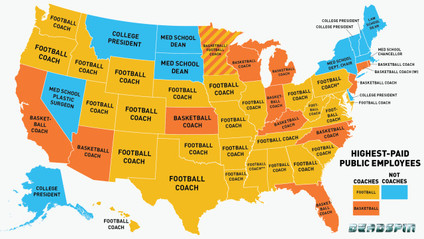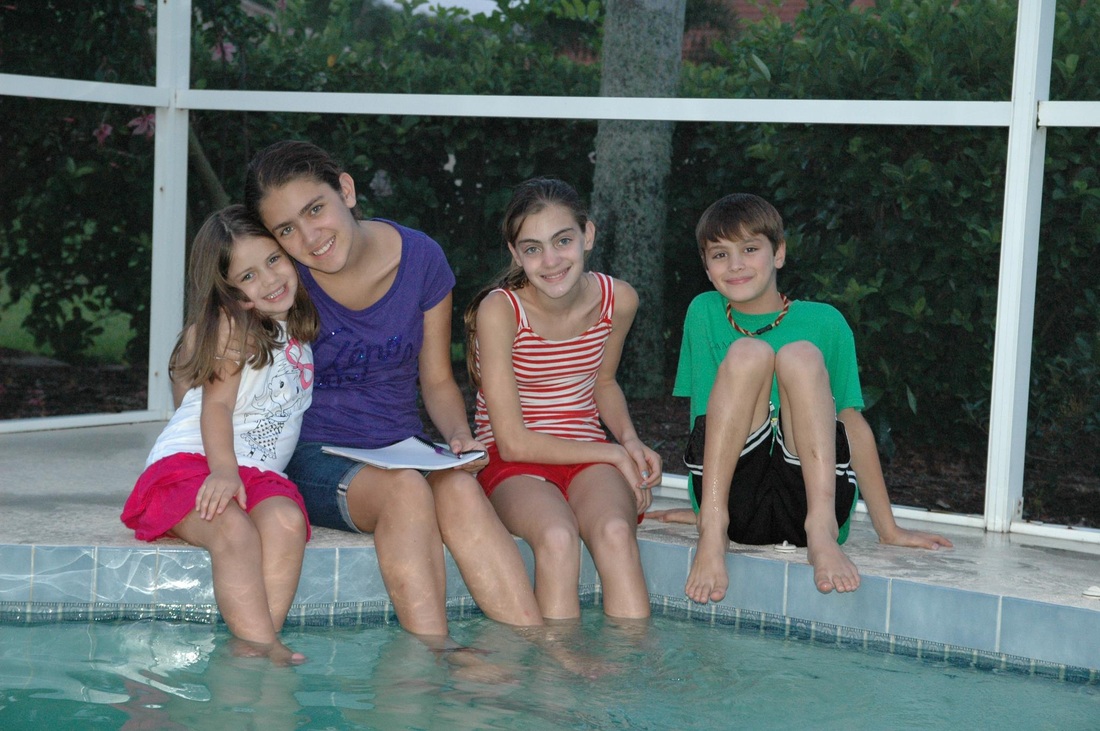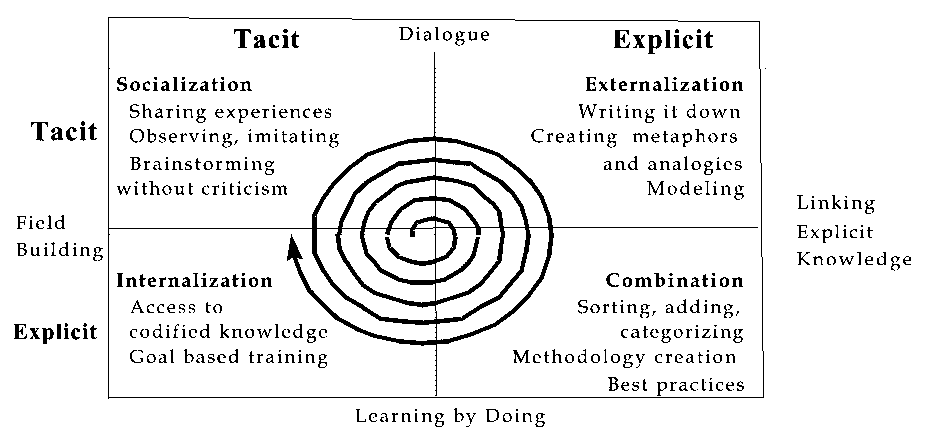|
Introducing a new page on Taylor Mali, teacher and hilarious poet who does educationally-themed poems! Read more...
1 Comment
Watch out, this post is part "egg head" and part political... "Egg head" first: More and more these days we see conflicts between immigrants and home populations. In the United States for example, there has been a large influx of immigrants from Central and South America. Many other countries have immigration problems (links are only to provide further reading, not to make an ideological point): Eastern Europe and the Indian Subcontinent into the United Kingdom Muslim immigration into France Eastern Europe into Germany The topic of my tutorial this week was that of "assimilation" and my tutor asked, "Should education be conceived as a mechanism for cultural assimilation?" My answer depends on the definition of "assimilation," which I defined with two separate definitions, one general and one specific (Brubaker 2001).
Not to bore you with the details (unless you want to be bored, in which case send me an email and I'll send you my paper), I argued that education should indeed be used for the GENERAL type of assimilation, because it can ease racial, ethnic, and cultural tensions. I believe that it is in fact virtually impossible to assimilate a culture completely using education in a modern society (1984 and North Korea are different stories). Now for the slightly political bit: There is an increasingly violent argument in the United States which asks the question "Should students be allowed to speak Spanish in American schools?" "The intergenerational acquisition of English at levels sufficient to permit success in schooling, occupational mobility, and full participation in public life" is "widely thought to be desirable" for obvious reasons (Brubaker 2001, p. 541). In order for one to succeed and excel in a society where a vast majority of the population speaks English (well over 80.3% according to the 2010 Census), they need to be proficient in English. However, "the intergenerational loss of competence in the language of origin" is most certainly a bad thing and leads to a loss of cultural pluralism (p. 541). As a compromise, curricula should be taught in the country or province’s official language, with classes given to those students who are not proficient, so as to afford the same opportunities to all students later in life regardless of language spoken at home. Those students and families can continue to speak their home tongue at home, but if only for their own sake they should learn English as well. Native English speakers should also learn a foreign language (which is required in the US for a certain number of years) because of all the benefits you can get from it! Argument brewing inside of you? Indignation on your lips?
Are you shouting at your screen right now (either in agreement or fury)? Comment! I'd love to hear about it! First I want to give you a quote, then two pictures. Are we old fashioned in our methods? If we are, it is the beginning of the end. In this progressive world it is perilous to be out of date. Has anything really changed? The picture on the left is from a school in 1937, the one on the right is from 2012. Besides the clothes and the kids, what has changed?? The rooms are still square, the desks are still in rows, the walls have the same awful posters on them, and the kids do more or less the same activities! We need to innovate our school systems. To quote NJ Governor Chris Christie: "If my children are living under the same school calendar that I lived under, by definition, that school calendar is antiquated." But it's not just the school calendar! That quote? Oh yeah, it's from an article in a teacher's magazine. From 1927. I wanted to thank my family for taking time out of their days to call, Skype, or FaceTime me! I had a great time the first week "Skyping" my cousins near Dorking, after I had settled into my flat. Continued calls throughout my tenure here from Mum and Dad back in the states are a needed and welcomed distraction from academics! And just last night a FaceTime call with cousins in Madison, NJ was a great way to check up on everyone and see how they're doing. I miss all my family at home and at The Citadel (who has off this afternoon due to hazardous winter conditions, AKA "flurries") and just wanted to thank you all for your continued support! Sincerely, James McManus The Oxford Observer Sierra Company, Class of 2016
Mrs. Obama is focusing her efforts on eating healthy, which is important, but kids don't want to eat healthy! More of them prefer to expel their energies running around and doing things they consider to be fun. The NFL's Play 60 is much more effective, I think, at combating childhood obesity. It even SOUNDS more fun: it has the word "play" in it! But anyway, that's besides the point.  http://deadspin.com/infographic-is-your-states-highest-paid-employee-a-co-489635228 http://deadspin.com/infographic-is-your-states-highest-paid-employee-a-co-489635228 Sports, as much as it may kill some people to say it, are NOT the focus of schools. Yes, many high school athletes get recruited on full scholarships to play in colleges, but even this admirable goal is becoming increasingly problematic. When the highest paid public employees in most states is a sports coach, it's clear we spend too much on sports, and not enough on education (see right). With America in the midst of a fiscal crisis, we should be cutting down on spending our money on entertainment and putting the crucial funds towards education! NEWSFLASH: Education is more important than sport teams!
The point is, if you asked an American student how much physical activity they get during school, they might mention 15 minutes at lunch for "recess" and maybe 40 minutes of gym every other day. Kids, especially boys, need to get out and run around every day, lest they completely lose their focus and ability to concentrate.
In high school, I got the privilege of helping out at "Back to School Night" where parents go to schools and meet their teachers, progressing through a mock version of their student's day. Each teacher's presentation was shortened to approximately 10 minutes. Boy was I shocked at how many parents had more difficulty sitting still than their children! No one can sit around for hours and listen to oftentimes boring lessons without being able to get up and exercise. The fact that we force children to is absurd! My main point: I'm all for longer school days, just with more exercise rather than longer lessons. In 1991, Ikujiro Nonaka and Hirotaka Takeuchi wrote a book called The Knowledge-Creating Company: How Japanese Companies Create the Dynamics of Innovation. Now you might be thinking who cares? It's a book about companies and economics, just another boring edition of The Idiot's Guide to Making Loads of Money or something like that. But you'd be wrong and, in fact, you would have missed out on a brilliant little theory they produced called the spiral of knowledge. You see in this book, Nonaka and Takeuchi proposed that there were two different types of knowledge, tacit and explicit. Explicit knowledge is “easy to articulate and express formally” (Paavola, Lipponen, and Hakkarainen 2004, p. 559) Tacit knowledge is “embedded in individual experience” and involves “personal belief, perspective, and the value system” (Nonaka and Takeuchi 1995, p. viii)
Okay great, so now we know where innovation comes from. So what? Well actually we go back to the title of the book, you know the one we said sounded like the Idiot's Guide to Fame and Fortune? Because actually it's very important. I'll write it again, with the important parts in bold: The Knowledge-Creating Company: How Japanese Companies Create the Dynamics of Innovation The fact is that Nonaka and Takeuchi wrote a book explaining how companies can foster innovation, something many people consider the key to business success.
Yet another great example of how children with disabilities affect the ones around them! Great video, definitely worth watching. |
Categories
All
Archives
December 2015
|














 RSS Feed
RSS Feed
